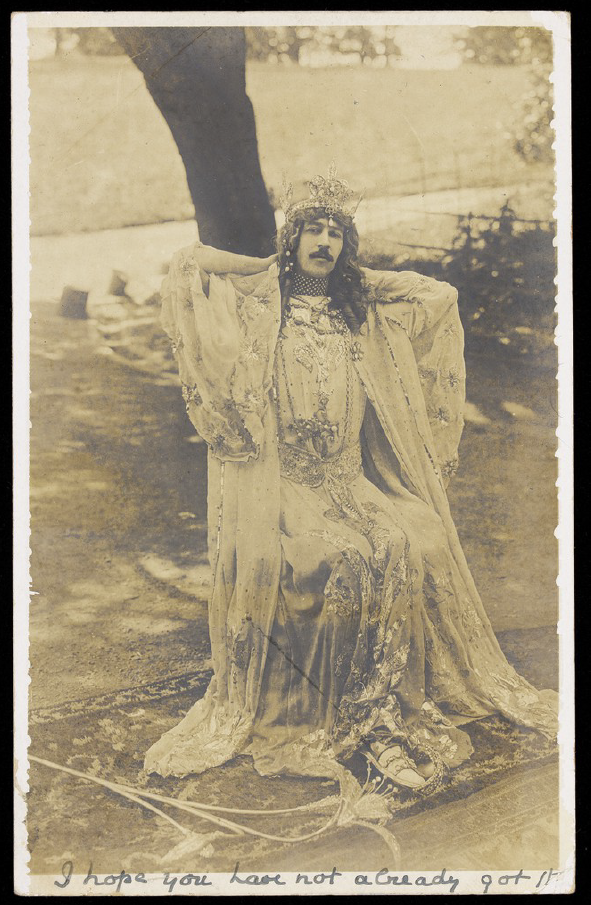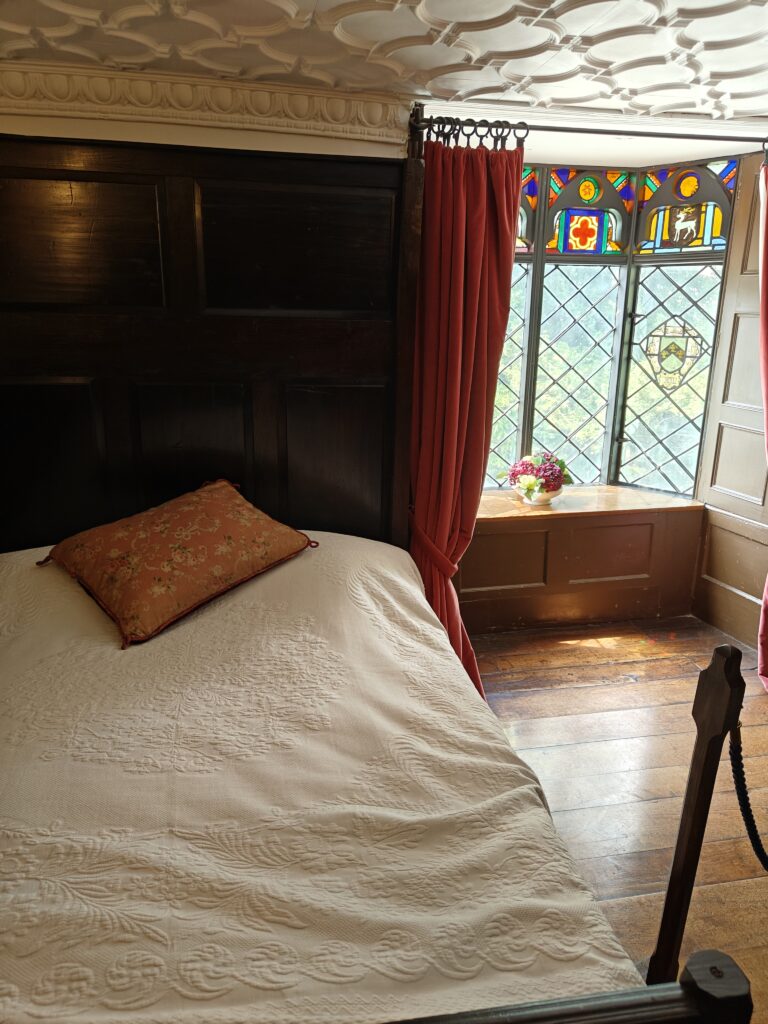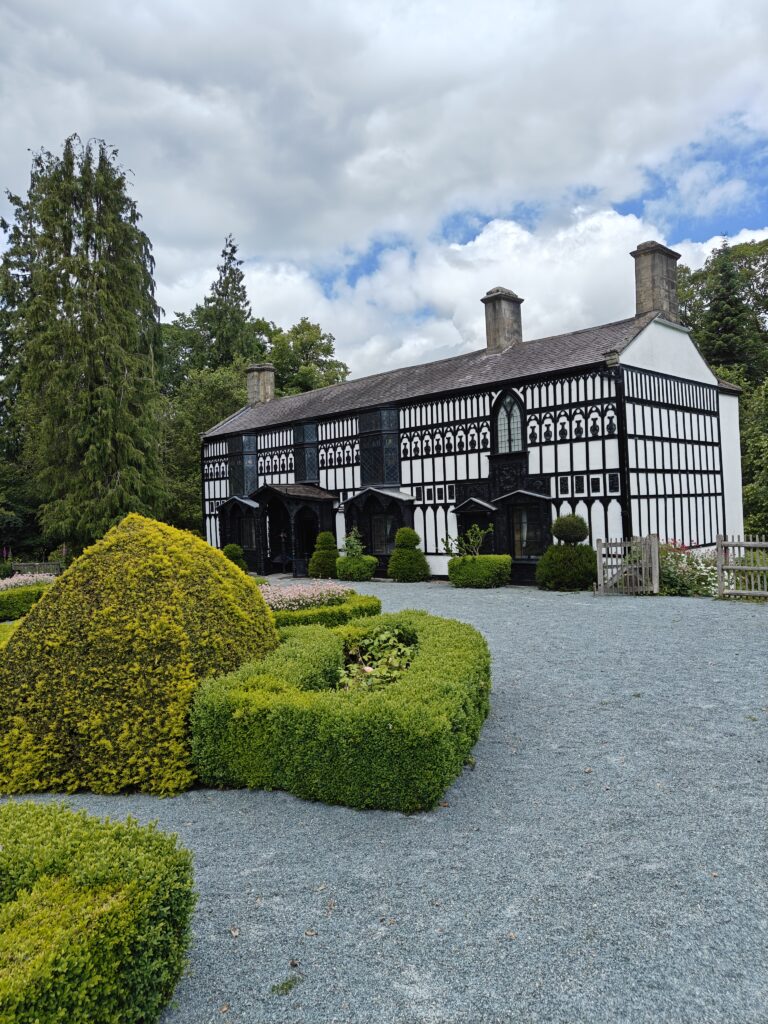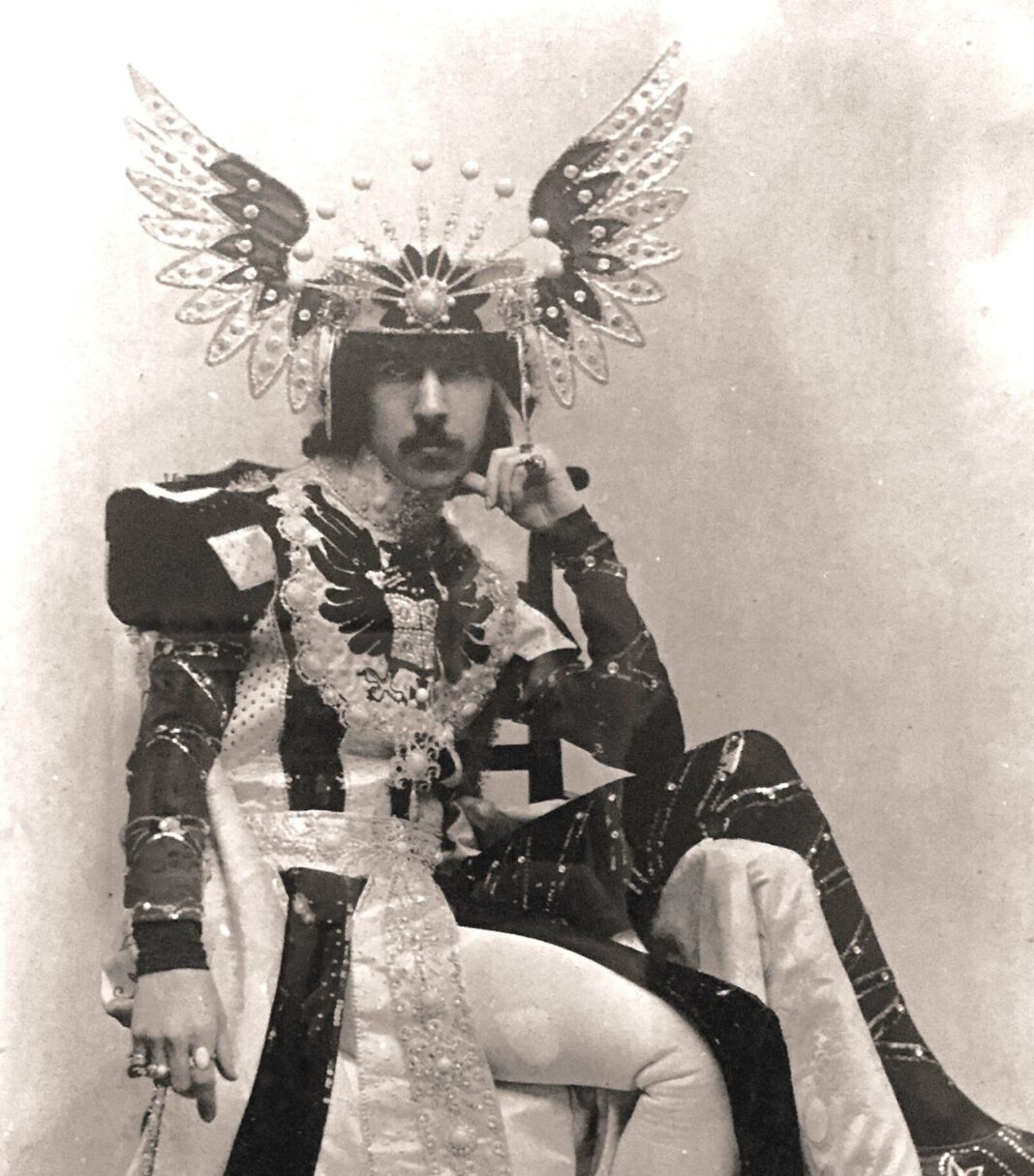Any foray into the British countryside requires visits to castles and grand country homes. But only in North Wales can you find two historic estates with deeply unique queer stories.
As if it’s some sort of Welsh joke, both estates have the same name, Plas Newydd, which surprisingly doesn’t mean “rainbow mansion,” but “new house or hall.”
One story centres on a sly couple of Irish women (and their maid), who perhaps threw shade at Anne Lister, the queer trailblazer who was the inspiration for the series Gentleman Jack. The other stars a flamboyant aristocrat who knew how to throw a party and wear a ball gown, but not necessarily produce a watchable theatrical production, though his life is about to hit the big screen in a film starring Rupert Everett, Siobhán McSweeney and Callum Scott Howells.
Henry Paget, the “Dancing Marquess”

The handsome and huge Plas Newydd House and Gardens (Llanfairpwllgwyngyll, Wales), built in 1470, overlooks the Menai Strait on the island of Anglesey. The property is now operated as a museum and parklands by the National Trust, but following a line of succession, it was home to 19th century aristocrat Henry Paget, fifth Marquess of Anglesey, nicknamed the Dancing Marquess. Adhering to the philosophy of live fast, look good, die young, Paget died of an undiagnosed illness at age 29 after spending £43 million (US$57 million) on “clothes, pink poodles and cars that billowed perfume.”
Born in 1875, Paget inherited Plas Newydd in 1898 along with about £110,000 a year (about £18 to £20 million (US$24 to 26 million) today. He renamed it Anglesey Castle and set about trying to make the property a centre of cultural life.

Despite much speculation, there is little documentation of Paget’s sex life, inside or outside his short marriage to his cousin. The 1997 BBC series The Aristocracy: Born to Rule 1875-1914 reported: “The closest [his] marriage ever came to consummation was that he would make her pose naked covered top to bottom in jewels and she had to sleep wearing the jewels. The marriage only lasted six weeks till she came running home.”
But Paget’s flamboyant tendencies and penchant for dressing in feminine clothes raised questions about his sexual orientation.
“He spent a very large amount of money on clothes, which he loved. I think he had 400 pairs of pajamas and 300 waistcoats, most of which were never worn,” says Christopher Sykes, the seventh Marquess of Anglesey, in the BBC documentary. “He was mad keen about the theatre. He started a full theatre here, and he used to pay famous actors and actresses from London to come and play second to him.”

Paget frequently rewrote shows to include his signature performance, “The Butterfly Dance,” which involved waving a voluminous robe of transparent silk around like wings. (Sadly, there is no visual documentation of the dance.) He toured the dance around the U.K. and to Berlin and Dresden. One of his favourite roles was Queen Eleanor, which required a particularly voluptuous costume. “Such stories only confirmed the growing public view of the aristocracy as profligate and indulgent,” states the BBC documentary. Despite his extraordinary wealth, Paget blew all of it and died deep in debt in 1905.
In the coming film version of Paget’s life, called Madfabulous, written by Welsh screenwriter Lisa Baker, the marquess will be played by queer Wesh actor Callum Scott Howells, who starred in the British miniseries It’s a Sin as Colin Morris-Jones.
Also cast are Rupert Everett, one of the first mainstream British movie stars to come out publicly, and Irish actor Siobhán McSweeney, who played the wry Sister Michael in the cult sitcom Derry Girls—all signs indicating that the filmmakers are leaning into a gay camp portrayal of Paget.
Before there was Gentleman Jack, there were the ladies
Although the Ladies of Llangollen, who established their own Plas Newyyd in the town Llangollen, just over an hour’s drive from Liverpool, are not yet getting their own movie, their lives are Hollywood adjacent.

Eleanor Butler and Sarah Ponsonby were upper-class women who grew up close—very close, some might say—in County Kilkenny, Ireland. Butler’s family wanted to put her in a convent; Ponsonby suffered abuse. In the spring of 1778, under the cover of darkness—both of them wearing men’s clothing and armed with a pistol—they fled their respective homes, meeting up together to find a new life. Although they were caught by Ponsonby’s family, they persuaded their families to let them live together in North Wales, along with Ponsonby’s maidservant, Mary Carryl, who had aided in their escape. In doing so, they left all the privileges behind them.
At first, Butler and Ponsonby rented a small home in Llangollen, then in 1780 moved to a small cottage, which they dubbed Plas Newyyd and is now operated as a museum and gardens by the local council. Using up their limited income, and relying on community support, they expanded, renovated and decorated the property, reusing hand-me-down furniture and fixtures from other estates and churches, giving the place an eccentric Gothic look—dark oak panelling inside and out, pointed arches and stained glass windows. They supported themselves selling vegetables from their garden. The longest living of them occupied the home for more than 50 years.

First the locals, then curious people from across the United Kingdom and Europe became intrigued by their unconventional way of life—three women living on their own in the Welsh countryside a couple of hundred years before the modern LGBTQ+ movement. Butler and Ponsonby were known to share a bed together, with their maid in her own bed in the room in the attic, but they did not talk about their arrangements with anyone outside the household.
Though there were few true-to-life images made of them, there was a popular demand for prints depicting them together. Queen Charlotte requested a map of the house and gardens; they put musk scent on the copy they sent her and the queen ripped it up. Among their visitors were the Duke of Wellington and William Wordsworth, who wrote a sonnet for them. (They were disappointed with the poem because he described their home as a cottage, according to a guided tour of the estate.)

But perhaps the most interesting caller was Anne Lister. Several decades younger than the ladies, Lister is now known as “the first modern lesbian” and was the inspiration for the HBO series Gentleman Jack. Lister was a wealthy, independent landowner in Yorkshire, England, about a three-hour drive (these days) from Plas Newyyd. (Her home, Shibden Hall, Lister’s Rd., Halifax, West Yorkshire, is also worth a visit.) Lister dressed in an androgynous/masculine way and had documented affairs with several women. During Lister’s visit to the ladies, she was perhaps hoping to find some sort of connection to the two older women, but documentation at Plas Newyyd suggest the ladies revealed little about themselves or the nature of their relationship to Lister.
All three women lived at Plas Newydd until their deaths: Caryll died in 1809, Butler in 1829, at the age of 90, and Ponsonby two years later in 1831, at age 76. Caryll is buried with the couple. Was the couple actually a throuple? That would be a series worth watching.
Editor’s note: The cost of the writer’s trip to Wales was covered by VisitWales. The sponsors of the trip did not direct or review coverage. The views expressed are the writer’s own.


